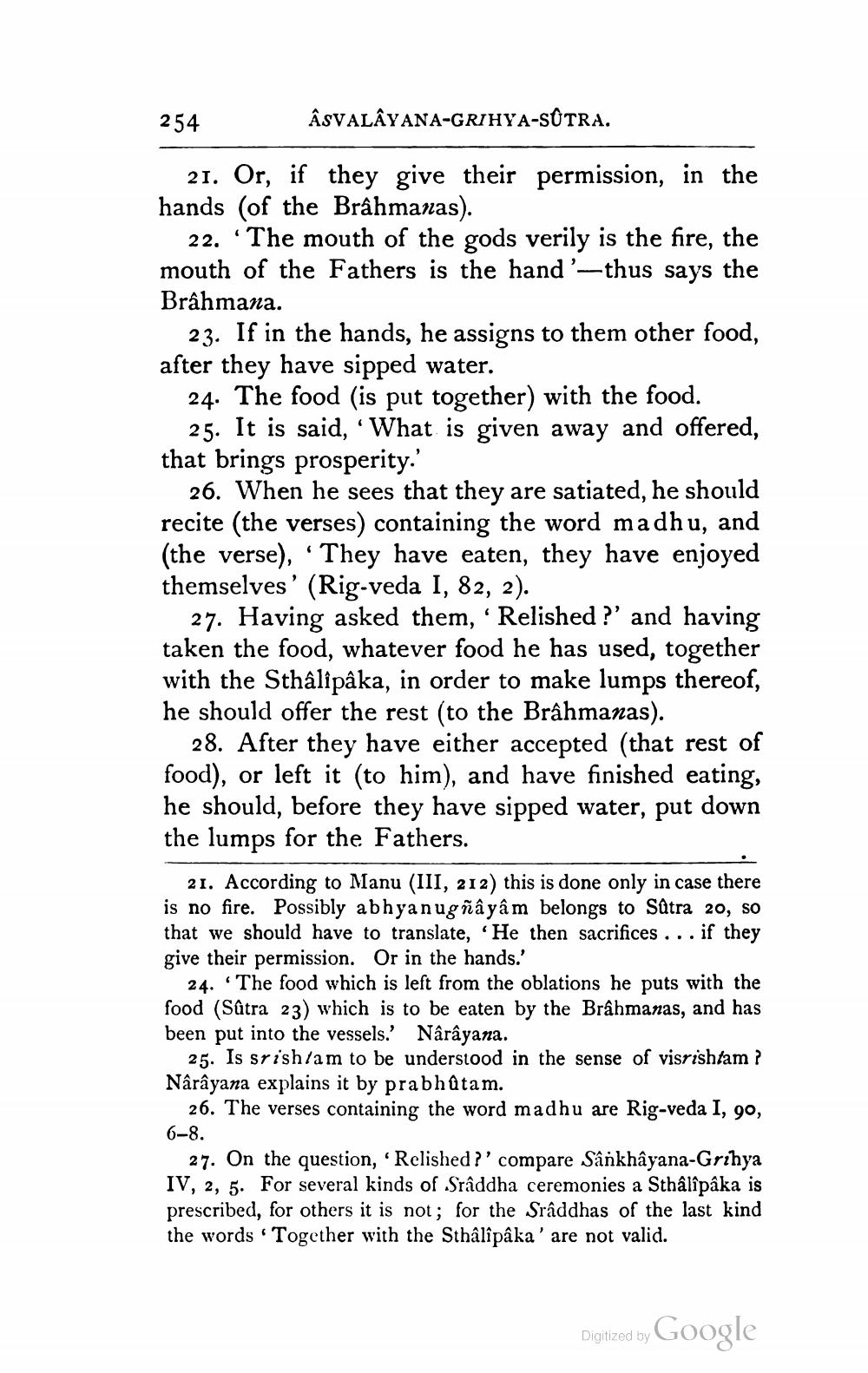________________
254
ASVALAYANA-GRIHYA-SUTRA.
21. Or, if they give their permission, in the hands (of the Brâhmanas).
22. “The mouth of the gods verily is the fire, the mouth of the Fathers is the hand'-thus says the Brâhmana.
23. If in the hands, he assigns to them other food, after they have sipped water.
24. The food (is put together) with the food.
25. It is said, 'What is given away and offered, that brings prosperity.'
26. When he sees that they are satiated, he should recite (the verses) containing the word madhu, and (the verse), 'They have eaten, they have enjoyed themselves' (Rig-veda I, 82, 2).
27. Having asked them, 'Relished ?' and having taken the food, whatever food he has used, together with the Sthâlipâka, in order to make lumps thereof, he should offer the rest (to the Brâhmanas).
28. After they have either accepted (that rest of food), or left it (to him), and have finished eating, he should, before they have sipped water, put down the lumps for the Fathers.
21. According to Manu (III, 212) this is done only in case there is no fire. Possibly abhyanugñâyâm belongs to Satra 20, so that we should have to translate, He then sacrifices ... if they give their permission. Or in the hands.'
24. The food which is left from the oblations he puts with the food (Sûtra 23) which is to be eaten by the Brâhmanas, and has been put into the vessels.' Narayana.
25. Is srishtam to be understood in the sense of visrishtam? Nârâyana explains it by prabhatam.
26. The verses containing the word madhu are Rig-veda I, 90, 6-8.
27. On the question, 'Relished?'' compare Sânkhâyana-Grihya IV, 2, 5. For several kinds of Sraddha ceremonies a Sthâlîpaka is prescribed, for others it is not; for the Sraddhas of the last kind the words Together with the Sthâlîpaka' are not valid.
Digitized by Google




